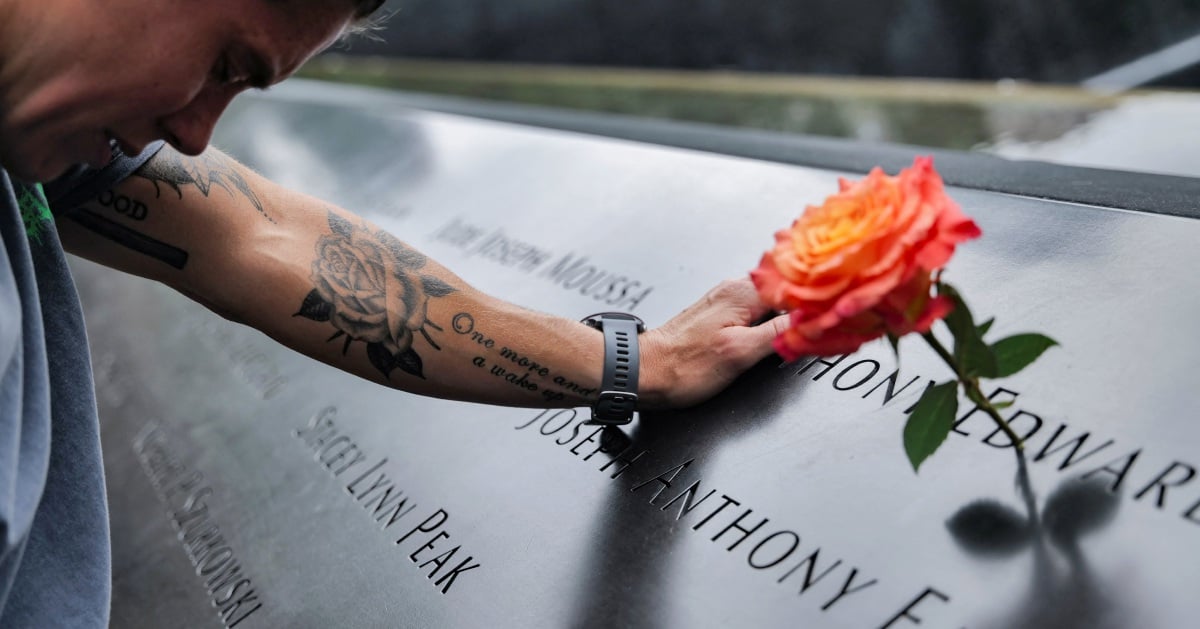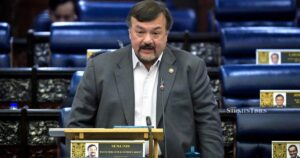KUALA LUMPUR: Malaysia’s Special Branch played a pivotal role in uncovering the presence of Al-Qaeda operatives in Kuala Lumpur nearly two years before the Sept 11, 2001 terror attacks in the United States, Deputy Inspector-General of Police Tan Sri Ayob Khan Mydin Pitchay revealed.
In a recent Facebook post to commemorate the 24th anniversary of the attack, Ayob said the Counter Terrorism Division of the police Special Branch had gathered intelligence on Al-Qaeda members in Malaysia as early as December 1999, long before the hijackers struck in New York and Washington.
The Sept 11 attacks, also known as 9/11, were a series of four coordinated terrorist attacks carried out by the Islamist extremist group al-Qaeda. Nineteen terrorists hijacked four commercial airplanes, crashing two into the World Trade Center in New York City and one into the Pentagon in Arlington, Virginia, while the fourth plane, United Airlines Flight 93, crashed in a field in Pennsylvania after passengers attempted to regain control.
Nearly 3,000 people were killed in these attacks, making it the deadliest terrorist act in US history, and it led to significant changes in US and global anti-terrorism policies.
Ayob recalled that in late Dec 1999, US intelligence agencies alerted the Special Branch to the presence of Al-Qaeda operatives in Kuala Lumpur.
“On Jan 4, 2000, additional information was provided, including the flight details and photograph of Khalid Al-Mihdhar, a senior Al-Qaeda member,” he said in the Facebook post.
Ayob, then an Assistant Superintendent leading a small Counter Terrorism unit, was dispatched with Inspector Mohd Raby and Inspector Ooi Yuet Kueh to monitor Al-Mihdhar’s arrival at the Kuala Lumpur International Airport.
“While Al-Mihdhar was at the baggage carousel, Mohd Raby identified him. Little did I know at the time that this suspect, together with four other Al-Qaeda members, would later hijack and crash into the Pentagon,” he said.
The team followed Al-Mihdhar at a safe distance as he left the airport with an Arab student and checked into a budget hotel in Bukit Bintang.
“Surveillance revealed that he was meeting other operatives including Nawaf Al-Hazmi, Salah Saed @ Khallad Attash, and Ramzi Bin Al-Shibh.
Khallad Attash, Ayob said, was previously involved in the 1998 US Embassy bombings in Tanzania and Kenya and later coordinated the USS Cole attack in Yemen in October 2000, 11 months after he stayed in Malaysia.
Ayob said the four Al-Qaeda operatives stayed in Malaysia from Jan 4 to 8, 2000.
“Highly trained, they avoided hotel phones and instead relied on public telephones and internet cafes in Bukit Bintang, including a frequently used phone booth outside Menara Maybank in Jalan Tun Perak.
“We obtained toll records of the calls made from that public phone and shared them with US intelligence.
“One of the numbers dialled belonged to Ahmad Al-Hada, Al-Mihdhar’s father-in-law, who had been connected to the Al-Qaeda cell responsible for the 1998 embassy bombings,” he said.
When the operatives departed for Bangkok on Jan 9, 2000, Malaysian police shared their flight details, passport numbers and contacts with US intelligence agencies.
However, Ayob pointed out that the information was not fully passed on to the Federal Bureau of Investigations (FBI), a shortfall later highlighted in the 9/11 Commission Report.
“Books such as ‘The Looming Tower’ by Lawrence Wright and ‘The Black Banners’ by former FBI agent Ali Soufan also documented the Special Branch’s cooperation with US counterparts,” he said.
Ayob said, as the case officer in charge of the surveillance on Al-Mihdhar and his associates, further intelligence led to the monitoring of Malaysian militant Yazid Sufaat and other Jemaah Islamiyah (JI) members connected to Al-Qaeda.
“A subsequent operation launched on Dec 11, 2001 uncovered the JI network across Southeast Asia.
“The Special Branch was the first intelligence agency to successfully expose JI cells operating in Malaysia, Indonesia, Singapore, the Philippines, Australia, and Thailand — a success recognised internationally,” he said.
Ayob said these successes were not the work of one unit alone but a result of collaboration across divisions within the Special Branch, guided by senior officers who upheld their duties with meticulousness, integrity and commitment.
He credited the leadership of then Special Branch director Datuk Yusof Rahaman, under whom the division achieved “peak performance” in intelligence and counter-terrorism operations.
© New Straits Times Press (M) Bhd






